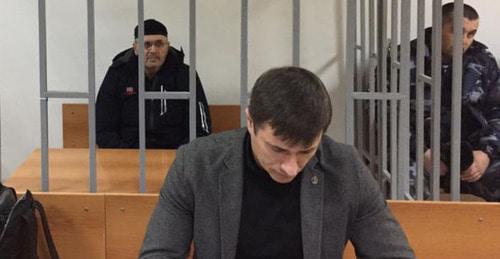
05 March 2018, 21:18
Russian presidential candidates go bail for Chechen rights defender Oyub Titiev to investigators
Ksenia Sobchak and Grigory Yavlinsky, candidates for Russian presidency, sent a petition to the Chechen investigator asking to release Oyub Titiev, the head of the office of the Human Rights Centre (HRC) "Memorial" in Grozny, under their personal guarantees.
The "Caucasian Knot" has reported that Ksenia Sobchak, a TV presenter, had several times demanded to release Titiev. On January 28, she held a picket in Grozny with the poster "Freedom to Oyub Titiev!"
Oyub Titiev was accused of possessing marijuana, and is in custody since January 11. He said that a law enforcer had planted the drug on him.
Full text of the article is available on the Russian page of 24/7 Internet agency ‘Caucasian Knot’.




